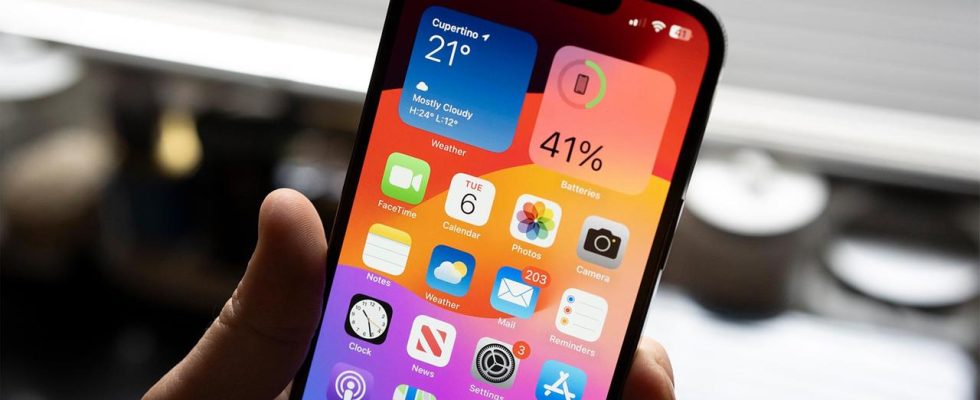Apple is responding to EU legal requirements and will allow apps from other providers’ marketplaces to be installed on the iPhone in the future. Competing payment methods are also permitted.
The technology group Apple is opening its app store to apps from other providers’ marketplaces. In addition, Apple will allow competing payment methods and alternative technologies for web browsers that were previously not permitted due to alleged security risks.
The reason for this is the EU’s legal requirements, which are set out in the Digital Markets Act (DMA/Digital Markets Act). The DMA requires operators of major platforms to allow apps to be downloaded from external sources.
Large and dominant providers, so-called gatekeepers, must now allow app stores from other providers. Previously, you could only download apps from the company’s in-house download platform on iPhones. The DMA regulations will take effect from March 7th.
Only “certified” marketplaces
However, Apple will continue to retain some control over the installation of applications, even if this takes place outside of its own app store. Unlike Google’s Android system, the apps cannot simply be downloaded using the browser and installed at your own risk. Rather, customers must use “certified” marketplaces for this. These are iPhone applications that, with Apple’s blessing, are allowed to install other apps.
In an interview with the dpa news agency, Apple top manager Phil Schiller points out the risks associated with direct installation: “If any website can download apps onto the device, this represents a major threat to the security and data protection of users “, said Schiller.
The certification process also meets the requirements of EU law. Overall, however, users in Europe are exposed to a higher risk than users outside the EU due to the measures enforced by the DMA.
With the announced implementation, Apple will in future be able to automatically check all apps for malware and other security threats, even on alternative marketplaces. However, the business practices associated with the apps or the content shown there are not checked.
Fortnite returns
The game developer Epic, which is in dispute with Apple, announced its own app store for the iPhone this year immediately after the new rules were announced. “Fortnite” has not been able to download on iPhones for more than three years. Apple removed the game from its App Store in August 2020 after Epic used a trick to avoid the 30 percent levy when purchasing digital content. Epic took the expulsion to court but lost. Outside the EU, Apple still doesn’t have to allow “Fortnite” into the App Store.
Epic boss Tim Sweeney also accused Apple of undermining competition with the planned implementation of the DMA. Among other things, he pointed out that by “authenticating” marketplaces, Apple could block competing app stores from Epic or Microsoft, for example.
More than just Apple Pay
In parallel to the adjustments to the app stores, Apple is also introducing further changes to counteract monopoly accusations from the EU. In the future, European users will be able to freely set the default browser in the iPhone. So far, the Apple browser Safari automatically opens all web links. In the future, this task can also be performed by browsers such as Google Chrome, Firefox, Microsoft Edge, Brave, Opera or DuckDuckGo.
Competitors are no longer forced to use Apple’s favored “WebKit” technology to display websites in their apps, but are allowed to use their own “web engines”. In order to use the new options, the latest operating system version iOS 17.4 must be installed on the device.
Apple’s monopoly on contactless payment transactions with the iPhone is also falling in the EU. Until now, only the in-house payment service Apple Pay could use the iPhone’s NFC (“Near Field Communication”) function to make a payment at the supermarket checkout or other payment terminal. In the future, users will be able to determine which payment application should start by default.
Revenue sharing is lowered
However, Apple has shown little accommodation when it comes to the controversial revenue sharing for paid apps or in-app purchases. So far, Apple has required smaller developers and long-term subscriptions to share 15 percent in sales. Providers with a turnover of over a million dollars per year even have to pay 30 percent. These commissions will now be reduced to ten percent and 17 percent. If the developers use the App Store’s payment processing, an additional three percent is due.
As a concession to the EU, Apple now allows developers to use an alternative payment processor in their app or link users to a website to process payments without additional fees from Apple.

